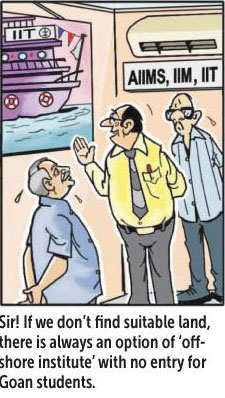09 Dec 2017 | 06:02am IST
When will India show outrage and ask ‘What’ve we come to’, the way the Bombay High Court did
The Bombay High Court, on Thursday asked a question that has bogged some of our minds at the very least. A bench of Justices Dharmidakari and Bharti Dangre asked, in reference to the lead actress of the movie Padmavati, Deepika Padukone, facing death threats “In which other country do you see threats made to artists and performers.. a feature film cannot be released in this country. What have we come to?
On the very day that these words of anguish were spoken in the High Court of Bombay, in the Rajsamanad district of Rajasthan, Shambhulal Regar, planned and executed the most inhuman brutal murder by butchering a labourer and burning his body, with his act being filmed allegedly by a minor relative. He is no different from the beasts of ISIS for whom killings are accentuated manifold only when they are filmed and the videos uploaded. This is savagery of the vilest kind.
While the heart stops with rage and the gut reaction would be to settle scores with the killer at the very instant, let’s pause and look at Shambulal Regar as one of the many ugly warts which have popped up on India’s landscape as a result of a climate these warts seem conducive. It is this climate that we need to deal with.
If public lynching in the name of a contorted term called “love-jihad” (sic) which takes on different meanings with different degrees of intensity, giving the accusers a bloody licence to kill the accused then something is seriously wrong with our social fabric. And while it is easy to attribute support to the accusers by the ruling party and support to the victims by the opposition, it is India which gets shamed. It is India which loses. It is India which becomes less human.
Undoubtedly the Modi government at the centre and Vasundhara Raje government in Rajasthan have to act and react to this particular case. But this comes in the wake of attacks and lynchings in many parts of North India. This prompted the Prime Minister to condemn this and state that the government will not tolerate this but then the climate should have altered. These are not just fringe elements. They are menacingly getting in the mainstream in certain pockets of India.
Imagine for moment, if a man butchered another man to death and set him on fire and recorded the killing, in the UK or the USA. The country would have come to a standstill and all attention of the authorities and the government from the President or the Prime minister downwards would have been focussed on this.
Isn’t is painful that our nation seems to have witnessed this horror and simply moved on.
And here all of us are to blame. All political parties are to blame. Those who take out protests to ban Padmavati the movie for supposed distortions of history without seeing the film, including the BJP Goa Mahila state president Sulakshana Sawant, do not carry the same anger to the streets when a fellow human being is slain to death and the killing wilfully recorded. At the same time, has any opposition party including the Congress reacted to this killing with the rage that it deserves. The last phase of the Gujarat elections, has consumed every party to such an extent that this killing has been pushed into a mere footnote as other lynchings have been.
It is still not too late to change the landscape. Special fast track courts should be set up to hear cases of hate crimes on a day to day basis. In cases where the motive, the time, the details of the crime and video evidence is present, with the accused not just demonstrating but also speaking of his killing, a judgment can be delivered in a matter of weeks in these courts and further fast tracked through the High Courts and Supreme Courts so that when conviction is won for rarest of the rare crimes, the sentencing should be carried out and swiftly to serve as some kind of deterrent. This needs to be debated in Parliament and laws amended to allow for such speedy justice.
We owe this to the families of the victims. We owe it to ourselves. And above all we owe it to our country. We have to show the courage to ask ourselves, “What have we come to?” When we feel the pain of this question, it is only then that we will look at a way out and a way forward.
